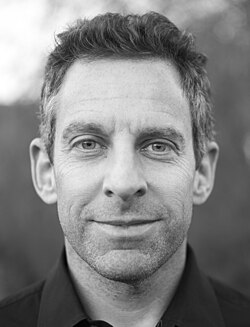Sam Harris Quote
There is a sense in which all cognition can be said to be motivated. One is motivated to understand the world, to be in touch with reality, to remove doubt, etc. Alternately one might say that motivation is an aspect of cognition itself. Nevertheless, motives like wanting to find the truth, not wanting to be mistaken, etc., tend to align with epistemic goals in a way that many other commitments do not. As we have begun to see, all reasoning may be inextricable from emotion. But if a person's primary motivation in holding a belief is to hue to a positive state of mind, to mitigate feelings of anxiety, embarrassment, or guilt for instance. This is precisely what we mean by phrases like wishful thinking, and self-deception. Such a person will of necessity be less responsive to valid chains of evidence and argument that run counter to the beliefs he is seeking to maintain. To point out non-epistemic motives in an others view of the world, therefore, is always a criticism, as it serves to cast doubt on a persons connection to the world as it is.
There is a sense in which all cognition can be said to be motivated. One is motivated to understand the world, to be in touch with reality, to remove doubt, etc. Alternately one might say that motivation is an aspect of cognition itself. Nevertheless, motives like wanting to find the truth, not wanting to be mistaken, etc., tend to align with epistemic goals in a way that many other commitments do not. As we have begun to see, all reasoning may be inextricable from emotion. But if a person's primary motivation in holding a belief is to hue to a positive state of mind, to mitigate feelings of anxiety, embarrassment, or guilt for instance. This is precisely what we mean by phrases like wishful thinking, and self-deception. Such a person will of necessity be less responsive to valid chains of evidence and argument that run counter to the beliefs he is seeking to maintain. To point out non-epistemic motives in an others view of the world, therefore, is always a criticism, as it serves to cast doubt on a persons connection to the world as it is.
Related Quotes
Certainly we can say that the pace of modern life, increased and supported by our technology in general and our personal electronics in particular, has resulted in a short attention span and an addict...
Detachment is not the absence of emotion, it is the process of becoming one with the Oneness that is the Universe. To be detached, is to realize that the fullness of all there is, is too much to react...
About Sam Harris
Harris's first book, The End of Faith (2004), won the PEN/Martha Albrand Award for First Nonfiction and remained on The New York Times Best Seller list for 33 weeks. Harris has since written six additional books: Letter to a Christian Nation in 2006, The Moral Landscape: How Science Can Determine Human Values in 2010, the long-form essay Lying in 2011, the short book Free Will in 2012, Waking Up: A Guide to Spirituality Without Religion in 2014, and (with British writer Maajid Nawaz) Islam and the Future of Tolerance: A Dialogue in 2015. Harris's work has been translated into over 20 languages. Some critics have argued that Harris's writings are Islamophobic. Harris and his supporters reject this characterization, saying that such a labeling is an attempt to silence criticism.
Harris has debated with many prominent figures on the topics of God or religion, including William Lane Craig, Jordan Peterson, Rick Warren, Robert Wright, Andrew Sullivan, Cenk Uygur, Reza Aslan, David Wolpe, Deepak Chopra, Ben Shapiro, and Peter Singer. Since September 2013, Harris has hosted the Making Sense podcast (originally titled Waking Up), which has a large listenership. Around 2018, he was described as one of the marginalized "renegade" intellectuals, though Harris disagreed with that characterization. In September 2018, Harris released a meditation app, Waking Up with Sam Harris. He is also considered a prominent figure in the Mindfulness movement, promoting meditation practices without the need for any religious beliefs.
